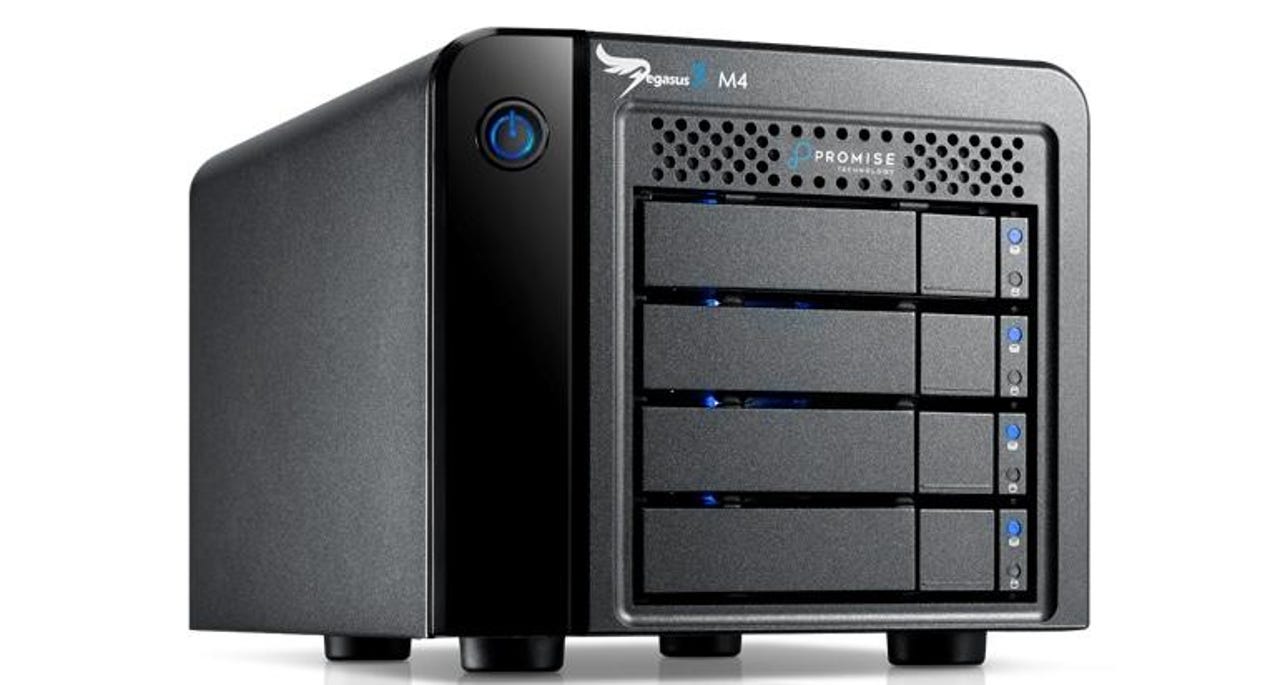Promise Technology unleashes new high-performance storage devices


Pegasus3 M4
Promise Technology has unveiled a portable Thunderbolt 3 RAID device and an all-flash array for enterprise users.
Must read: Apple's big $1,000+ iPhone gamble
Let's begin with the Thunderbolt 3 RAID, called the Pegasus3 M4, which is marketed as "the fastest Thunderbolt 3 RAID storage you can find!"
The Pegasus3 M4 offers 4 terabytes of storage and comes in two flavors - the Pegasus3 M4 M.2 which can take up to eight M.2 SATA flash modules or the Pegasus3 M4 SFF SSD which can house with four 2.5-inch SATA HDDs or SSDs.
Pegasus3 M4 highlights:
- Supports maximum 2800 MB/s throughput allowed by
- Thunderbolt 3 interface
- 1-meter Active Thunderbolt3 cable included
- Supports MacOS and Windows
- Kensington Security Slot
- Fully support for ACPI
- EFI supported for MacOS boot
- Kensington Security Slot
- Power charging support
Weighing in at 5.5 kg, Promise claims that the Pegasus3 M4 "fits easily in your backpack or handbag!"
The Promise All Flash Array EFA5310 is a totally different beast. This is an ultra-high performance unit aimed at the enterprise market and is designed to lower server CPU I/O wait times.
According to Promise, on average users sees over 90 percent reductions in power and cooling requirement.
The EFA5310 features high-bandwidth with a transfer rate greater than 12.8 GB/s, sub-millisecond latency, and is scalable up to 1 petabyte of storage (a petabyte is 1,000 terabytes). Suggested applications include:
- Transactional Workloads, Databases
- OLTP, Analytics
- Latency sensitive applications
- Real-time "Big Data Analytics"
- Virtualized Server and VDI
- High Bandwidth applications
- Backup and DR target
- Rich Media Workload
The EFA5310 comes in four capacity tiers - 11, 22, 46, and 92 terabytes, and users can add expansion AFA shelves in steps of 11, 22, 46, 92 terabytes.
Best Google Chrome extensions to enhance your security and productivity
See also:
- Apple selling outdated 32-bit iOS apps that will soon stop working
- Is it time for high-end pros to dump the Mac?
- How to securely erase hard drives (HDDs) and solid state drives (SSDs)
- Hidden iOS 10.3 feature highlights apps that will soon become obsolete
- Top tech fitness gadgets to help you get fit and healthy